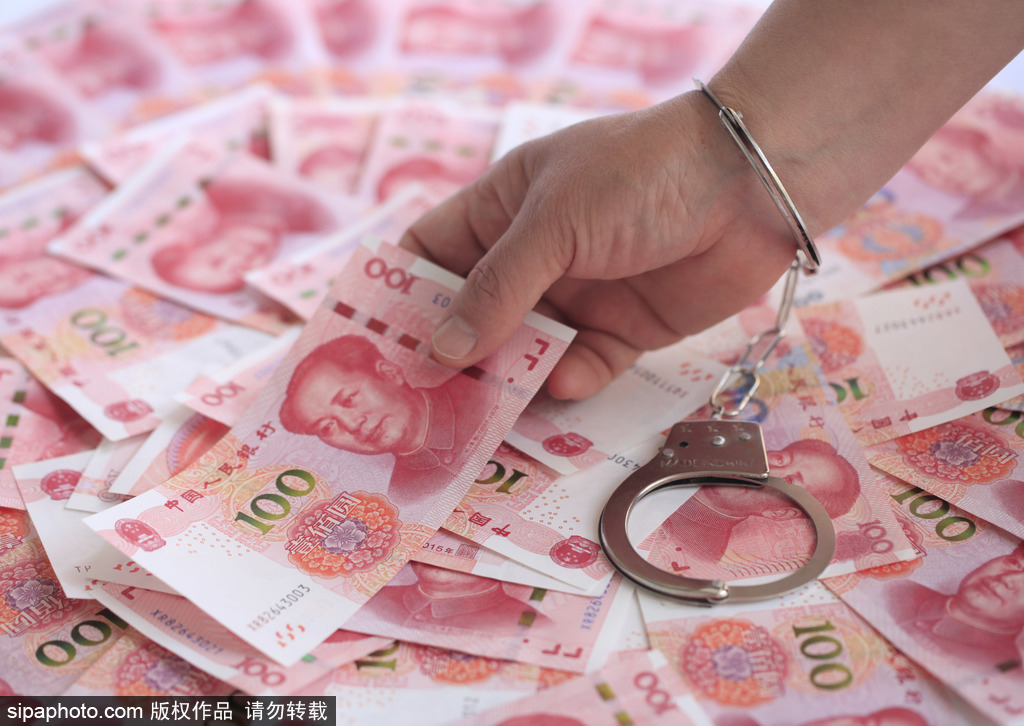Pursuit of fugitives to continue
By Yang Zekun | China Daily | Updated: 2023-08-10 07:19

Determination remains unabated as 582 captured and brought back this year
The country's top anti-graft bodies have reiterated their pledge to pursue fugitives overseas and recover stolen assets through deepening international cooperation and using law-based methods.
From January to June this year, 582 fugitives were captured and brought back to China, and stolen goods worth 1.93 billion yuan ($270 million) were recovered, according to a recent report on fugitive apprehension and asset recovery from the Central Commission for Discipline Inspection of the Communist Party of China and the National Commission of Supervision.
According to the CCDI and NCS, the results demonstrate the CPC Central Committee's strong resolve and firm will to deepen international cooperation in pursuing fugitives overseas.
The CCDI and NCS said the results reflect the progress made in Sky Net 2023 — an initiative launched in March to build a mechanism for pursuing fugitives and recovering stolen goods.
According to the initiative, the NCS takes the lead in tracking down fugitives and recovering their stolen goods, while the Ministry of Public Security and the People's Bank of China prevent and combat the use of offshore companies and underground banks to transfer stolen money overseas. The Supreme People's Court and the Supreme People's Procuratorate adopt legal procedures to recover stolen goods in cases where the suspects and defendants evade investigation or have died.
Since the beginning of this year, authorities have made full use of international rules and domestic laws, carried out in-depth international judicial and law enforcement cooperation against corruption, and adhered to the pursuit and recovery of fugitives and stolen goods in a law-based way, according to the commissions.
Apprehending fugitives and asset recovery departments at all levels continue to increase their efforts to solve difficult problems such as searching, freezing, confiscating and returning assets, the commissions said.
In February, the Shanghai No 2 Intermediate People's Court applied for the confiscation of illegal gains and the land-use rights of Feng Weihua, a fugitive on an Interpol Red Notice, who had purchased land and built a factory using money acquired via corruption, bribery and embezzlement.
Feng, former deputy Party chief of Taopu town in Putuo district, Shanghai, fled to Canada in July 2012. After he remained at large for a year without turning himself in to judicial organs, the court ordered confiscation of his illicit gains.
The fight against corruption must balance both the international and domestic battlefields, and international cooperation against corruption must be deepened to ensure that those who have fled have no place to hide and those who attempt to flee lose their illusions, said the CCDI and NCS.
In the pursuit of fugitives, the focus has been on the people on the Red Notice — a request to law enforcement worldwide to locate and provisionally arrest a person pending extradition, surrender, or similar legal action. There is a list of 100 fugitives who have fled and have not been brought to justice in recent years, according to the CCDI and NCS.
In June, Guo Jiefang, 70, turned herself in and was handed over to China after 23 years on the run. Relevant stolen goods have also been recovered.
Guo used to be a traffic police officer in Guangzhou, Guangdong province, and is suspected of taking bribes. She fled the country in March 2000. In December 2007, Interpol issued a Red Notice for her.
Yang Weidong, a professor at the Institute of Rule of Law at China University of Political Science and Law, said that since the CPC 18th National Congress in 2012, the central government has been attaching more importance to overseas fugitives and asset recovery, and multiple fugitives who have been on the run for more than a decade have since been brought to justice.
Anti-corruption is an issue that necessitates international cooperation. Corrupt officials often attempt to escape in different ways and transfer their illicit gains to other countries, making it imperative for anti-graft departments to collaborate with departments overseas to handle such cases, he said.
"China has regarded international cooperation in the anti-graft field as a normal mechanism, which can also play a preventive role," he said.
"Some officials that have attempted to flee could find that the country has the ability to bring them back and place them under justice," he added.
























